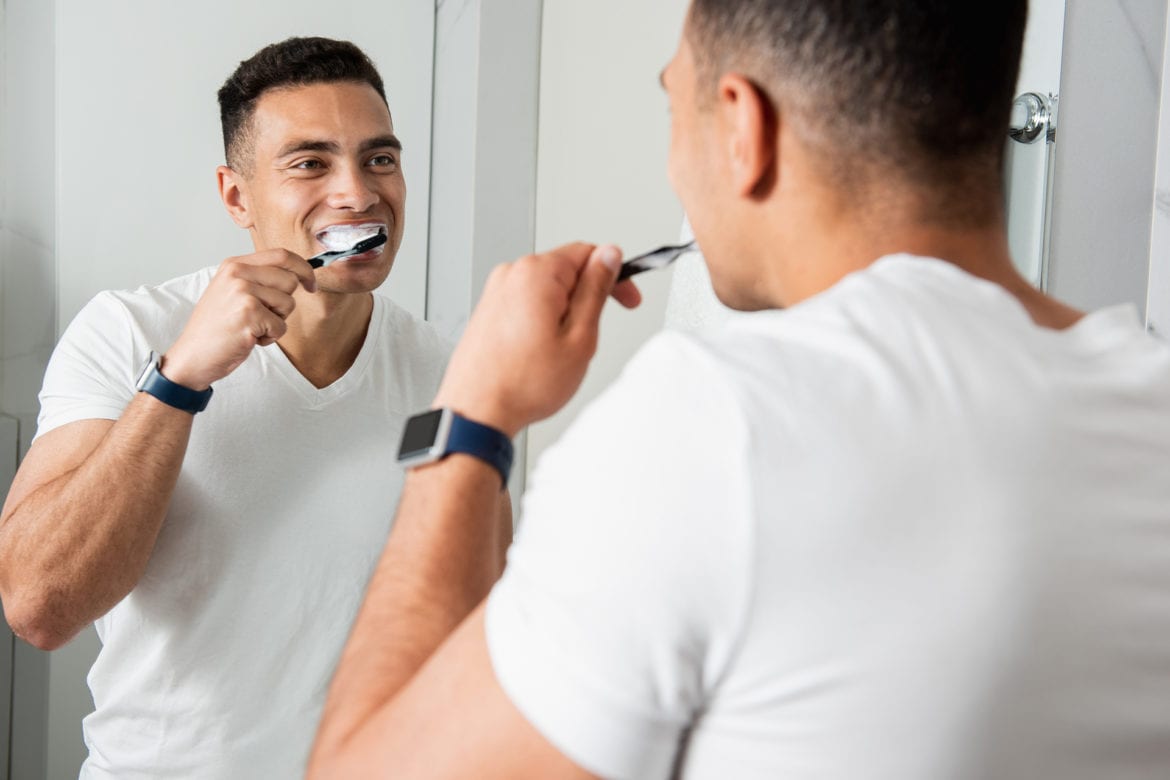New research reveals that we are at risk of oral health problems as we are not following simple steps to maintain a healthy oral health routine such as regularly changing our toothbrush, flossing or using mouthwash.
The World Health Organisation says our mouths shouldn’t be considered in isolation from the rest of the body, with oral issues sometimes linked to wider problems such as diabetes, cardiovascular disease, respiratory disease and even dementia.
But almost a third of us say we are not aware of the link between good oral hygiene and overall health and almost one in five (17%) of us don’t feel confident that we are brushing properly.
Public Health England recommends replacing your toothbrush every one to three months, yet findings revealed that two fifths of us (41%) admit to only doing this twice a year or less.
This can impact how effectively we are cleaning our teeth with research proving that a new toothbrush will clean 95% better. The research also reveals that almost two-thirds (62%) would not consider changing their toothbrush after being unwell with an illness such as coronavirus.
Hannah Young, Dental Hygienist and Colgate ambassador said: “For the majority of people, brushing twice a day for two minutes is routine, but what’s missing is how often they replace their manual toothbrush.
“This is worrying as it’s so important to your oral health – brushing with damaged bristles can mean you’re not reaching those important areas which leave you with plaque accumulation and risk of cavities and gum problems.
“It is also important that we replace our toothbrush after a cold, cough, or fever as the germs can live on toothbrush bristles and a moist environment is a perfect breeding ground for bacteria. It’s an easy and inexpensive step to take that will help look after both our mouth health and overall health.”
The research found that over a quarter of us don’t incorporate mouthwash (27%) or flossing (39%) into their everyday routine. It’s important that we use floss and mouthwash as they remove bacteria from those hard to reach areas of the mouth that your toothbrush can’t get to.
Additionally, toothpastes and mouthwashes that include active antibacterial ingredients can reduce the build-up of bacterial plaque and reduce the level of microbes in the mouth for whole mouth health.
Taylor Gordy, General Manager of Colgate UK said: “While we’re all taking active steps to improve our overall health, we should not be neglecting our mouth– which can be an indication of our wider health.
“Simple things such as a regular brushing routine, using an antibacterial fluoride toothpaste, a mouthwash and being sure to replace your toothbrush every three months is a great place to start, helping to prevent cavities and gum problems and keep your mouth healthy.”
Hannah Young’s Top Oral Hygiene Tips
Brush up!
Brush twice a day – one being last thing at night before bed – with an antibacterial fluoride toothpaste which not only helps prevent tooth decay but also helps to…

